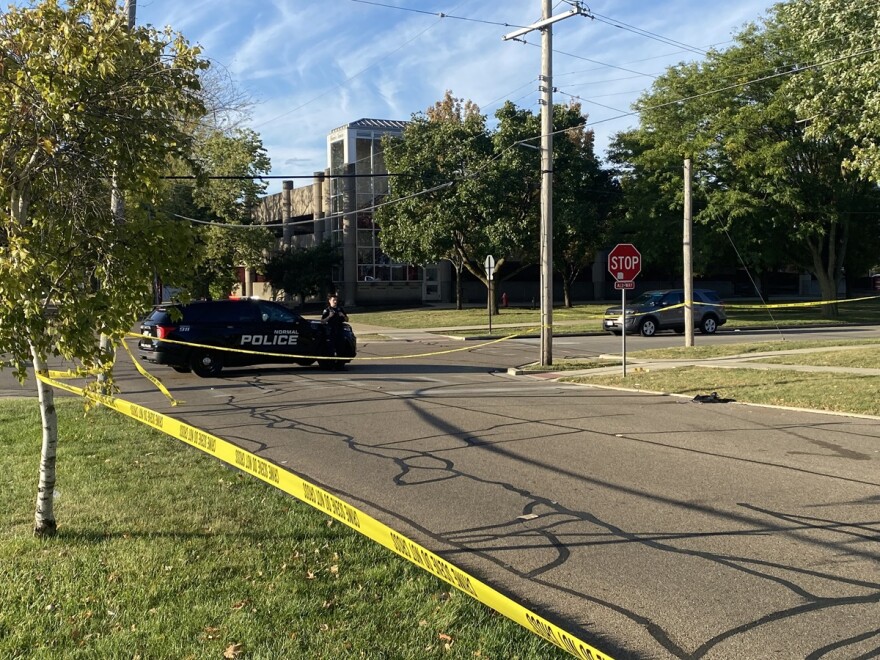Town of Normal Mayor Chris Koos says he spoke Monday with Illinois State University President Aondover Tarhule to come up with ways to prevent large parties from causing havoc on campus and around town.
“That’s an ongoing concern and that’s why it’s my number one priority right now,” Koos said in an interview on WGLT’s Sound Ideas.

The meeting follows an active weekend for police, responding to multiple unsanctioned parties near campus and in public parks. These loosely organized events promoted on social media reached a tipping point during ISU’s homecoming weekend as one of the parties turned fatal.
Authorities on Monday identified the 18-year-old who was killed in Sunday's shooting. A second person was critically injured.
Tarhule said in a release to the campus community that these parties are disruptive and "have no place in our community."
“This is unacceptable and damages public and private property, disrupts local businesses and residential neighborhoods, and consumes significant university and community resources,” Tarhule said.
Tarhule added ISU plans to hold a series of meetings with student leaders in the coming weeks, as part of the university’s ISU in Conversation events on Oct. 14-15.
Koos said he's heard from residents who are concerned for their safety, adding he wants ISU to work with the town to develop a comprehensive strategy to prevent these parties from getting out of control in the future.

“Especially the Illinois State University student body to craft a solution. I don’t think anybody would like to see a repeat — even close — to a repeat of what happened Saturday night,” Koos said.
Koos said the City of Bloomington also should be involved in the discussions, given the potential for these parties to locate there, too.
ISU police response
Of course, parties in college towns are nothing new. But what’s new about these pop-up parties is how easily social media fuels larger crowds, and that the parties bounce from location to location like public parks, said ISU Police Chief Aaron Woodruff.
Some parties take shape without an exact location or time publicized, only for followers to get a last-minute notice about when and where, he said.
“That makes it very hard for those of us in public safety to plan for, but also to have those intervening conversations with the organizers to say, ‘Hey, if you’re going to be doing this, these are the potential outcomes,’” Woodruff told WGLT. “Things that we could’ve done as preventative measures in years past are just much more of a challenge now.”
Pop-up party organizers tend to think of themselves as promoters, even if they’re not making money directly and only earn compensation indirectly through social media reach, Woodruff said.
Identifying them is a challenge. Woodruff said police hasn't uncovered any “direct student connection” to the pop-up party that preceded Sunday’s shooting, though that could change.
Breaking up the parties once they’ve started also is difficult, said Woodruff, adding unstructured events like this don’t have a single “person in charge” who police can engage with on scene.
“The challenge with these events is it’s kind of like a giant game of Whac-a-Mole. You can push them out of a park, and they’re gonna go to a gas station. You push them out of one gas station, they’ll go to another location and another location. So, it’s a difficult challenge for law enforcement,” Woodruff said.
“When you’re talking 1,000 people or more, and the total number of law enforcement in McLean County is maybe 300, and that’s if you had every single officer, you still don’t have enough officers to deal with huge crowd sizes like that.”
Woodruff said he “strongly discourages” ISU students from attending these pop-up parties and encouraged them to reflect on their own personal safety first.
“If you’re there and something happens, it’s very possible you will be held accountable through the Student Conduct process,” he said of those participating in criminal acts.



